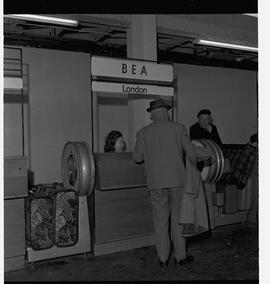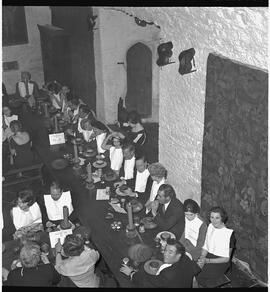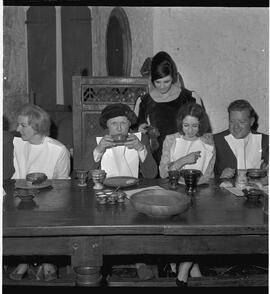Black and white negative spares of a British Airways plane on the ramp at Shannon Airport.
Shannon DevelopmentThis sub-series contains Kate O'Brien's correspondence with the British Broadcasting Corporation.
O'Brien, Kate (1897-1974), writerThis sub-series contains material relating to Tiede Herrema's appearances on various BBC television and radio programmes.
Herrema, Tiede (1921-2020), managing director of Ferenka Ltd.Black and white negative of the British European Airline (BEA) check in desk at Shannon Airport.
Shannon DevelopmentBlack and white negatives of the British European Airline (BEA) check in desk at Shannon Airport.
Shannon DevelopmentBlack and white negative of the British European Airline (BEA) check in desk at Shannon Airport.
Shannon DevelopmentBlack and white negatives of the British European Airline (BEA) check in desk at Shannon Airport.
Shannon DevelopmentBlack and white negative of the British European Airways (BEA) celebrating its inaugural flight from Shannon Airport at a medieval banquet at Bunratty. Envelope notes the initials T.J.C.
Shannon DevelopmentBlack and white negatives of the Medieval Banquet at Bunratty, thrown to celebrate the inaugural flight of the British European Airways (BEA) at Shannon. Envelope notes the initials T.J.C.
Shannon DevelopmentBlack and white negative of the British European Airways (BEA) celebrating its inaugural flight from Shannon Airport at a medieval banquet at Bunratty. Envelope notes the initials T.J.C.
Shannon Development

